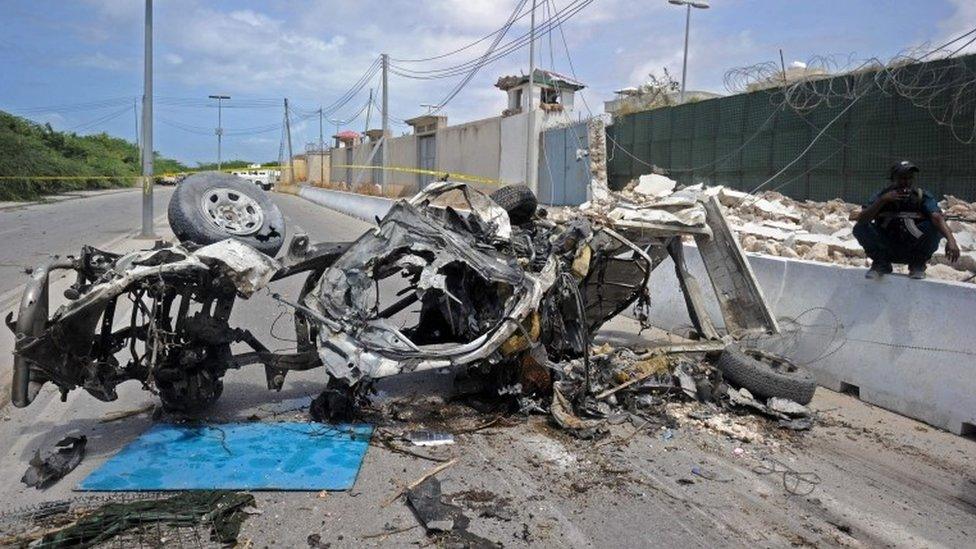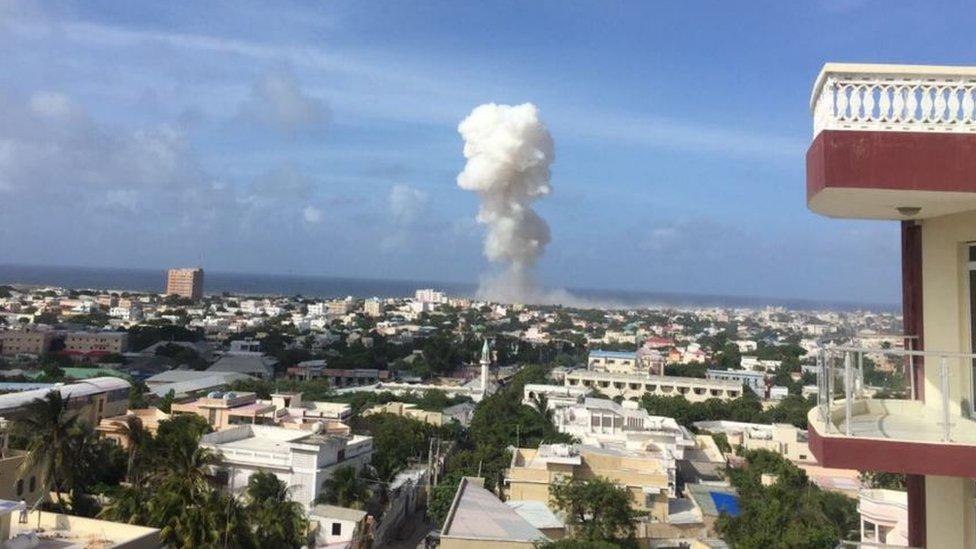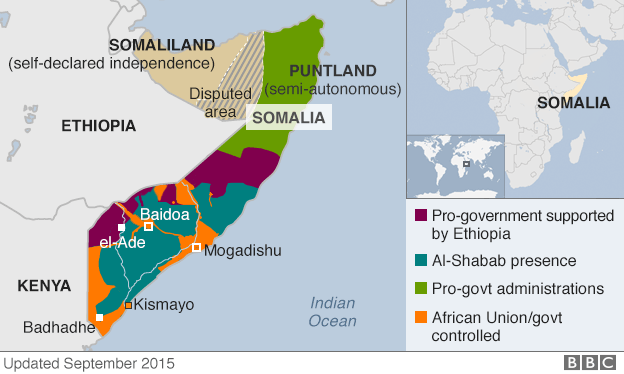Somalia attack: Mogadishu suicide bomber 'was ex-MP'
- Published

The car bombers targeted a heavily fortified area near the main airport
A former MP was one of two suicide car bombers who carried out Tuesday's deadly attacks in Somalia's capital, Mogadishu, militants have said.
Salah Nuh Ismail was among those who killed 13 people in the suicide attacks near the city's main airport, the al-Shabab group said.
Also known as Salah Badbado, he quit the Somali parliament in 2010 after denouncing lawmakers as "infidels".
Al-Shabab is fighting to oust Somalia's weak internationally-backed government.
The large airport area in Mogadishu is a secure "green zone" for UN operations, the 22,000-strong African Union peace force and foreign embassies.
The militant group, which is affiliated to al-Qaeda, were forced out of Mogadishu five years ago by African Union (AU) and government troops, but they have continued to carry out bombings in the city.
It has been increasing its attacks ahead of planned elections in Somalia.
Hotels have been attacked by car bombs and armed assault teams over the past few weeks.

A large plume of smoke rose into the sky after the blasts
The former MP's involvement in the latest attack marks a new trend, as up to now al-Shabab's suicide bombers have tended to be young and uneducated, says the BBC Somali Service's Mohammud Ali Mohamed.
The surname by which Ismail was popularly known, Badbado, means safety in the Somali language, our correspondent adds.
There are conflicting reports about whether he was aged 53 or 57.
Somalia's government has not yet commented on al-Shabab's statement that he was one of the bombers.
Ismail was an MP from 2004 to 2010, when he declared allegiance to al-Shabab at a press conference in Mogadishu and then went missing, our reporter says.
Until then, he was not known to have leanings towards al-Shabab and had been chosen by clan elders to represent the northern Burao region in the Somali parliament, our correspondent adds.
Somalia has been hit by continued religious and clan conflict since the fall of the Siad Barre regime in 1991.

Attacks on Amisom troops

2016
9 June: Al-Shabab said they killed 60 Ethiopian soldiers in Halgan - Ethiopia denied any soldiers were killed
21 April: Six Ethiopian troops killed in blast in Bay Region
22 February: 15 Ethiopian troops dead in clashes in Lower Shabelle
15 January: Scores of Kenyan troops killed in an attack on base in el-Ade
2015
1 September: More than 20 killed in suicide attack on base in Janale, including at least 12 Ugandan troops
26 June: At least 50 Burundian troops killed in attack on base near Mogadishu
2011
20 October: 70 Amisom and Somali troops killed in clashes in Mogadishu.

